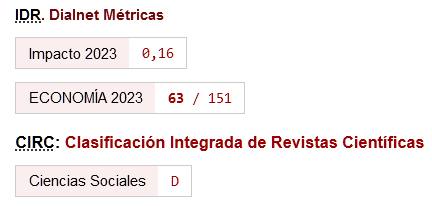Ciudades postcarbono y transición energética
Palabras clave:
Democracia energética, Generación distribuida, SostenibilidadResumen
Este artículo analiza las pujantes iniciativas centradas en el desarrollo de una transición energética hacia un modelo descentralizado y sostenible, que se está produciendo en algunos países y regiones. Por un lado, estudia los movimientos de las Transition Towns y de las Post Carbon Cities que, priorizando la transición energética, promueven la creación de economías descentralizadas y sostenibles. Por otro lado, analiza un amplio colectivo de iniciativas (cooperativas, municipales, inversión privada local, autoconsumo, crowd-funding, etc.) que están impulsando transiciones energéticas. Pero los oligopolios energéticos están lanzando una contraofensiva frente a las “tecnologías disruptivas” y están teniendo algunos éxitos.
Descargas
Citas
AIE (Agencia Internacional de Energía) (2012): World Energy Outlook 2012, Paris, AIE.
Andersen, T. y Patel, T. (2013): "What Do Struggling Gas-Fired Plants Mean for Renewables?" www.renewableenergyworld.com/rea/news/print/article/2013/03.
Bermejo, R. (2013): "El impacto del encarecimiento de los recursos naturales en el PIB ¿Hacia el fin del crecimiento?", Galdera Nº 1.
Brangwyn, B. y Hopkinds, R. (2008): Transition Initiatives Primer. Becoming a Transition Town, City, District, Village, Community or even Island, Transition Network.
Cardwell, D. (2013): "Cities Weigh Taking Over From Private Utilities", www.nytimes.com/2013/03/14.
Comisión Europea (2011): Libro Blanco del transporte. COM(2011) 0144 final.
Cumbers, A. (2013): "Making Space for Economic Democracy: The Danish Wind Power", www.unrisd.org.
DGRV (Deutcher Genossenschfen und Raiffeisenverband) (2012): Energy cooperatives. Results of a Survey carried out in spring 2012, DGRV.
Edwards, A. (2007): "Property in Totnes: Wizards of wacky West", www.telegraph.co.uk.
Heinberg, R. (2011): The End of Growth. Adapting to Our New Economic Reality, New Society Publishers.
Hijink, G. y Montgomery, D. (2012): "Som Energy: the rise of Spain ́s first renewable energy co-operative, www.socialenterprise.guardian.co.uk.
Hopkins, R. (2008) The Transition Handbook. From oil dependency to local resilience, Green Books.
Hopkins, R. (2011): Transition Companion. Making your community more resilient in uncertain times, Green Books.
Huybrechts, B. y Mertens, S. (2011) The challenges of diffusing socially innovative organizational models: the case of renewable energy source cooperatives (REScoops), Centre of Social Economy, University of Liege.
Johnsson, J. y Malik, N. (2013): "Nuclear Industry Withers in U.S. as Wind Pummels", www.renewableenergyworld.com/rea/news/print/article/2013/03.
Kind, P. (2013): Disruptive Challenges: Financial Implication and Strategic Responses to Changing Retail Electric Business, Edison Electric Institute.
Krukowska, E., Morales, A. (2013) "EU Debate Over Climate Change Policy Could Dampen Renewable Energy Growth", www.renewableenergyworld.com/rea/news/print/article/2013/05.
Leidreiter et al. (2013): "From vision to action. A workshop report on 100% Renewable Energies in European Regions", World Future Council.
Lerch, D. (2008), Post Carbon Cities: Planning for Energy and Global Warming for Local Governments, Post Carbon Institute, Sebastopol (California).
Lipp, et al. (2012): Renew energy co-op review: Scan of models & regulatory issues, Canadian Co-op Association.
NRECA (National Rural Electric Cooperative Association) (2012): Cooperatives and Renewable Energy, NRECA.
Parkinson, G., (2012): RenewEconomy: Why power generators are terrified of solar. [Online] Available at: http://reneweconomy.com.au/2012/why-generators-are-terrified-of-solar-44279.
Petra Solar-GTM, (2013): Delivering High Value Electricity With Smart Distribuited PV Generation, Petra Solar.
Portland City Council, (2007): Report of the City of Portland, Portland City Council.
Post Carbon Institute, (2009): Post Carbon Institute Manifesto. The Time for Change Has Come, PCI.
Rolland, S. (2013): "Promoting Small Wind in Developing Markets", www.renewableenergyworld.com/rea/news/print/article/2013/04.
Schönberger, P. (2013): "Municipalities as Key Actors of German Renewable Energy Governance", Wuppertal Papers Nr. 186, Wuppertal Institut.
Sharp, R. (2008): "They don't just shop in Totnes - they have their very own currency", The Independent, 01/05/08.
Transition US (2011): Guiding Principles of Transition, www.transitionus.org.
TT-EDAP (2010): Totnes 2030, an Energy Descent Action Plan, www.transitionnetwork.org.
Willis, R. y Willis, J. (2012): Co-operative renewable energy in the UK. A guide to this growing sector, Co-operatives UK.
Yapp, R. (2012): "Cities Utilities Push Germany's Switch to Renewables", www.renewableenergyworld.com/rea/news/print/article/2012/10.
Descargas
Publicado
Cómo citar
Número
Sección
Licencia
Esta licencia permite a terceros compartir (copiar y redistribuir el material en cualquier medio o formato) y adaptar (remezclar, transformar y crear a partir del material para cualquier finalidad, incluso comercial), siempre que se reconozca la autoría y la primera publicación en esta revista (La Revista, DOI de la obra), se proporcione un enlace a la licencia y se indique si se han realizado cambios en la obra.







